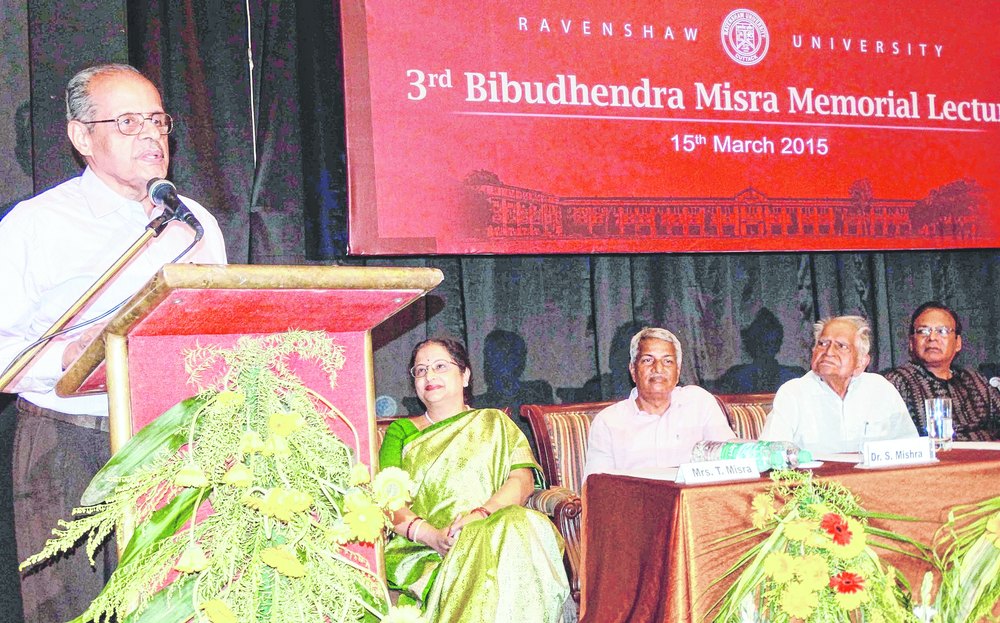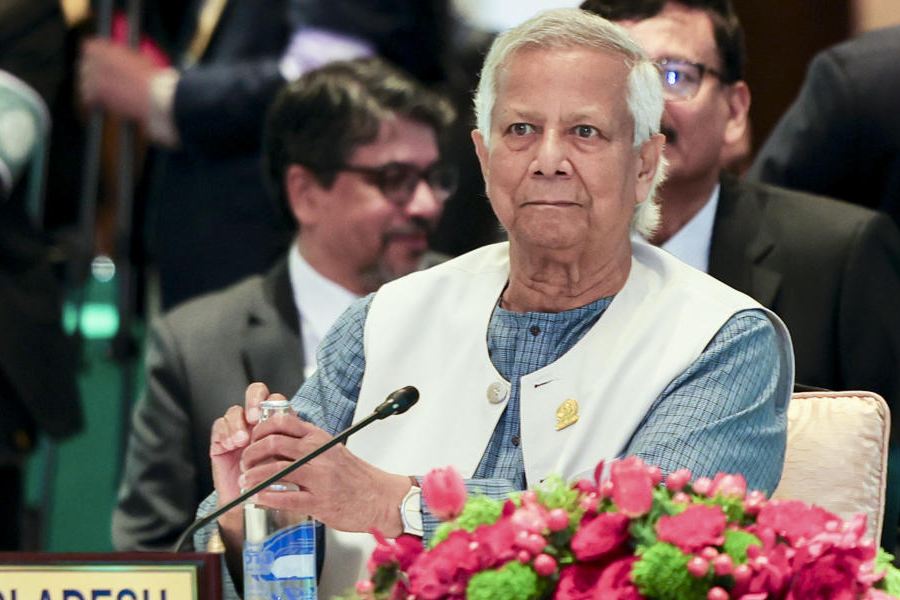
Cuttack, March 16: Former National Judicial Academy director N.R. Madhava Menon believes that the proposed National Judicial Appointment Commission would not impair the independence of the judiciary but enhance democratic commitment and transparency in appointments of Supreme Court and high court judges.
Speaking at the third Bibudhendra Mishra Memorial Lecture on the commission at the heritage hall of Ravenshaw University last evening, Menon said it was "a new constitutional institution to be handled with extreme care and diligence".
Petitions challenging the Constitution Act, 2014, and the Judicial Appointment Commission Act, 2014, are before the Supreme Court and some high courts. Under the current model, a panel of Supreme Court judges, along with the Chief Justice of India, decides the appointment of judges to these courts.
The proposed model provides for decision by the commission consisting of six members - three from the judiciary and three from the civil society and the government. The Chief Justice of India as ex-officio chairperson of the commission and two other Supreme Court judges as ex-officio members represent the judiciary. The Union law minister represents the government. The two other members are eminent persons (one of them belonging to ST, SC, OBC, minorities or women) nominated by a committee consisting of the Prime Minister, Chief Justice of India and the leader of Opposition in Lok Sabha.
Critics argue that associating the executive in the appointment process will jeopardise the independence of the judiciary.
In the face of constitutional provisions related to this matter, Menon said it was illogical to argue that the executive should have no say in the matter. "Nor is it acceptable" to say that executive's participation in judicial appointments will compromise independence of judiciary. Such a view is based on a misconception of judicial independence itself.
"What is important is transparency of procedure and objectivity of criteria to determine merit and integrity. Let us hope the proposed commission will rise to the occasion and discharge its functions with full responsibility of the trust reposed on it by Parliament," Menon said.
Citing the process of appointment of judges in other countries, Menon said: "There is no country apart from India where judges alone select judges to be appointed."
"What is universally accepted is the participation of the executive government in judicial appointments is consistent with judicial independence so long as they are made in consultation with judiciary," he said.











